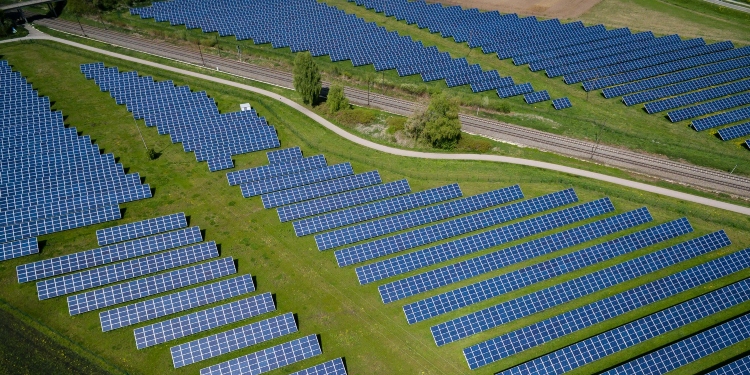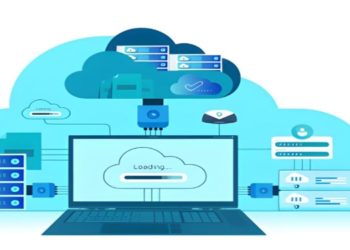The UK economy is undergoing a significant transformation in 2025, powered by groundbreaking technological innovations. As digital tools, AI, green energy, and fintech reshape industries, businesses and policymakers alike are reevaluating how value is created and distributed. These shifts are not abstract—they affect employment, consumer habits, trade, and overall economic growth.
Artificial Intelligence: Driving Efficiency and Innovation Across Sectors
Artificial intelligence (AI) is no longer confined to the realm of academic research or high-tech startups—it has become a core engine of productivity across almost every UK sector. In healthcare, AI-powered diagnostic tools are reducing hospital wait times and improving accuracy in early disease detection, while NHS trusts are adopting automation to streamline administration.
In the finance industry, AI has redefined fraud detection and customer service. Major British banks like Barclays and Lloyds are deploying machine learning models to monitor transactions in real time and detect unusual patterns. This protects consumers while minimizing operational risk. Meanwhile, AI chatbots are now capable of handling sophisticated queries, cutting down the need for human agents and improving user experience.
The manufacturing sector also benefits greatly. AI-driven predictive maintenance systems are slashing downtime in factories, helping British manufacturers remain globally competitive despite higher wage costs than emerging markets. These shifts are resulting in measurable GDP growth and stronger exports.
Green Technology: Pushing the UK Towards Energy Independence and Sustainable Growth
Sustainability is no longer just an environmental concern—it’s an economic strategy. In 2025, green technology is playing a pivotal role in reshaping the UK economy. With Brexit-era trade changes still settling, energy independence has become a strategic necessity. Investments in offshore wind farms, hydrogen infrastructure, and electric vehicle (EV) charging networks are generating thousands of new jobs across the country.
One standout area is the adoption of battery storage technology. British firms are leading the way in scalable battery solutions that allow intermittent renewable sources like wind and solar to provide consistent power. This stabilizes the grid and reduces reliance on imported natural gas. The UK’s Green Finance Institute has also facilitated billions in private investment into clean tech startups, giving rise to a new class of economic actors contributing to GDP.
Moreover, policies like the UK Emissions Trading Scheme (ETS) are incentivizing businesses to adopt greener processes. Even traditional sectors like construction and agriculture are integrating carbon tracking tools and automated resource management. These efforts not only help meet net-zero goals but also attract global investors eager to back eco-conscious economies.
Fintech and Digital Payments: Revolutionizing Commerce and Consumer Behavior
Fintech is radically changing how Britons interact with money, invest, and spend. Mobile-first banking platforms like Monzo and Starling have seen massive adoption in 2025, especially among newer generations who prefer speed, transparency, and lower fees. The shift to digital wallets and instant peer-to-peer payments has streamlined commerce, making it easier for small businesses to operate in a cashless society.
The UK is also emerging as a leader in Open Banking. Thanks to data-sharing regulations, customers can securely connect multiple financial accounts and get personalized advice powered by AI. This level of customization is fostering smarter financial decisions and increasing consumer confidence. Meanwhile, blockchain technology is being quietly adopted by legacy institutions for identity verification and smart contract automation, further enhancing transparency and trust.
Interestingly, even the entertainment sectors are benefiting. For instance, platforms offering the best slot games are integrating advanced fintech tools to ensure faster deposits, user protections, and responsible spending analytics. This convergence between financial tech and digital experiences is helping the UK economy remain agile, consumer-focused, and resilient to global shocks.
Source: Pixabay
Remote Work and Digital Infrastructure: Redefining Labour Markets and Regional Development
Remote and hybrid work have become permanent fixtures of British economic life in 2025. Companies across tech, media, and even segments of the legal and consultancy sectors are downsizing traditional office space in London, redirecting investments toward cloud infrastructure and cybersecurity solutions.
This shift is helping to reduce regional disparities, with cities like Manchester, Cardiff, and Glasgow experiencing notable growth in high-paying remote job opportunities. By decentralizing employment, these changes are fostering a more balanced and inclusive economic landscape across the UK.
Digital collaboration tools—from AI-powered scheduling apps to virtual reality meeting spaces—are making cross-border teamwork seamless. This has opened up the British service sector to global clients without requiring physical relocation. In fact, the rise of distributed teams has led to new gig economy models, where UK-based freelancers offer high-skill services abroad, generating inbound revenue.
David Prior
David Prior is the editor of Today News, responsible for the overall editorial strategy. He is an NCTJ-qualified journalist with over 20 years’ experience, and is also editor of the award-winning hyperlocal news title Altrincham Today. His LinkedIn profile is here.


![7 Best POS Software in the UK [2026 Edition]](https://todaynews.co.uk/wp-content/uploads/2026/02/7-Best-POS-Software-in-the-UK-2026-Edition-360x180.png)





















































![7 Best POS Software in the UK [2026 Edition]](https://todaynews.co.uk/wp-content/uploads/2026/02/7-Best-POS-Software-in-the-UK-2026-Edition-120x86.png)

![7 Best POS Software in the UK [2026 Edition]](https://todaynews.co.uk/wp-content/uploads/2026/02/7-Best-POS-Software-in-the-UK-2026-Edition-350x250.png)

















